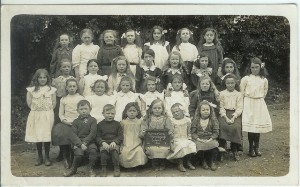Have you ever sat in a Maths class wondering why you will ever need to be able to do long division without a calculator? Or silently cursed your Geography teacher while learning about the formation of oxbow lakes? And History? That’s all in the past and irrelevant, isn’t it?
In this series of articles, we will look at some of the subjects we learn at school, and try and answer the question: What’s the point in learning this?
Last time we looked at uses of Maths, both in day-to-day life, and for your future career. Today we will focus on learning English. Once we have learned how to read, write and spell, what is the point? Will we ever need to quote Shakespearian sonnets? And who, other than writers, needs to be able to write stories and poems?
Win Arguments with Words, Not with Fists
Have you ever heard the expression “The pen is mightier than the sword?” As some people use physical strength to win a battle, for those of us who aren’t the confrontational type the use of words can be as, and often more effective, in winning our battles. Think about it. What would the world be like if every time someone annoyed us we went and pushed them around or worse?
There will be many times in your lives where you have to confront someone, either by email, letter or face to face. Using a wide variety of words correctly, and being able to put your point across clearly is more likely to keep people on your side and gain their respect. English teaches you how to do this, to control the language you use and how to use it effectively. Reading increases your vocabulary – the range of words you can use – and these words are tools which you will use all your life to make what you say worth listening to.
Understand our History
English Literature opens our eyes to what we are, as a society, and how we got here. We can see how attitudes to all kinds of issues, such as marriage, women’s equality, and poverty have all developed. When Shakespeare wrote his plays they were designed to entertain people of the 16th century, so they reflect the issues and attitudes of the time.
If you want to know what life was like for the poor in the 19th century, then Charles Dickens demonstrates it in several of his books. Jane Austen and the Brontë sisters wrote about issues affecting women in the 19th century, a surprising number of which are still very relevant today.
Brain Training
Reading is easy isn’t it? Well, once you’ve mastered the basics, for most of us it is. But some books are very hard to read, using language from the past, or more complex language than we are used to. The books they choose for you to read at school are sometimes challenging, but this is all to do with brain training.
Concentration on and the ability to properly analyse texts will serve you well in the future when, for example, you’re reading an employment contract or the paperwork that comes with your insurance policies. The small print. Dull but ever so important to understand!
What’s Going on in the World?
Where do you find out? TV News? Newspapers? Twitter? There are numerous times on a day to day basis where awareness of what is happening both at home and abroad is necessary. It comes up in conversation all the time.
English teaches you to read or listen critically, by which I mean to actively question the information you are given. This might not sound important, but can you imagine if everyone just accepted what was told to them by the media and believed everything they read? We need to be able to form our own opinion, and the work we do in English, the critical analysis, helps us learn to do that.
Speaking Out
Or speaking up. Or, just, speaking. Have you needed to give a talk or a presentation in class? It’s quite frightening at first, standing up in front of several or more people and speaking to the group but it is something we have to learn to do because in real life it’s very common.
In English at school, we have our first experience of public speaking, and this experience will help you in all kinds of jobs, but also in your social life. If you are the kind of person who dreads the spotlight, learning to cope with it may help you overcome shyness and feel less awkward.
So, words to help us communicate more easily, give us a better knowledge of the society we live in, give us the ability to be critical and analytical, and the confidence to speak in front of people and make yourself be heard — these are just some of the reasons we study English at school.
But what careers will use the skills we learn at school? The short answer is any career you can think of. Honestly. But let’s look at three more specifically:
Lawyer – Solicitors, barristers, paralegals, and judges all make great use of English. Barristers stand up and debate in court, one against another, trying to persuade the judge or jury that their argument is the right one. Before they get to court, solicitors prepare the arguments, doing copious amounts of reading, working through masses of documents and evidence to build up a persuasive case.
Lawyers also help people in trouble, and draft letters for their clients. They also write contracts for individuals and companies. If you enjoy writing, reading, debating, so if you enjoy English, the law is a real possibility for you.
Marketing and advertising – Advertisers use words and images to persuade us to buy what they are selling, be that a drink, perfume or insurance product. It is a career for people who enjoy the creative aspect of language use, or who are good at picking the right words for the right circumstances, which are both skills developed in English.
Speechwriter – When the PM or other politician gets up and gives a speech about, for example, education, it is very rare that she has written the speech himself. There are entire teams of people behind the scenes who write, review and rewrite the speeches that politicians make, trying to ensure that the speech gets a clear message across. The speeches use language to persuade us that what the speaker is doing is right, or that what another politician is doing is wrong. And the basis of these speeches use the skills we learn in English.
Studying English at university is often wrongly described as being a soft, or easy subject. This isn’t the case, and if you want to read more about it then have a look here: http://www.whystudyenglish.ac.uk
Writing dissertations, effective communication, giving presentations, putting forward an argument, reading difficult texts are skills necessary whatever the subject. Here are some more ideas for you to consider: journalist, politician, administrator, teaching English abroad, editor, technical writer…
 Rebecca Lee is a freelance writer, translator, and coach who lives in France. In her spare time she enjoys history, cooking, travelling and reading.
Rebecca Lee is a freelance writer, translator, and coach who lives in France. In her spare time she enjoys history, cooking, travelling and reading.










One comment
Leave a reply →